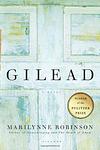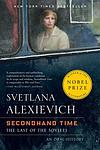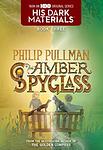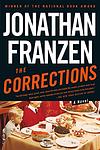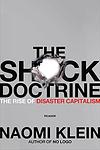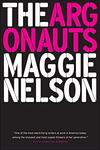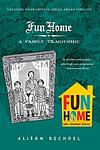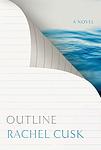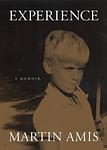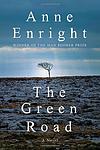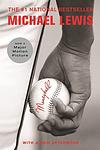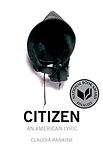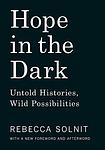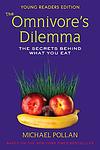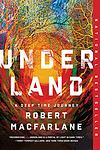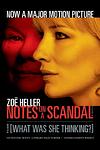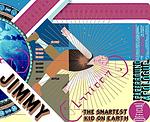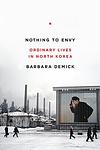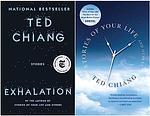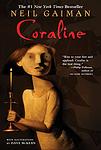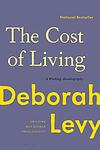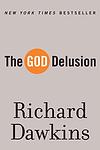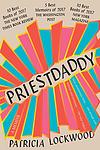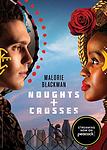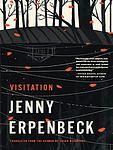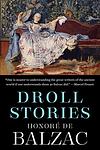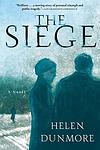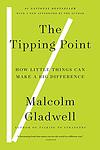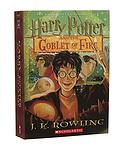The 100 best books of the 21st century
This is one of the 273 lists we use to generate our main The Greatest Books list.
-
Wolf Hall by Hilary Mantel
The novel is a historical fiction set in the 1500s, during the reign of King Henry VIII. The story is told from the perspective of Thomas Cromwell, a man of humble beginnings who rises to become the King's chief minister. The narrative explores the political and religious upheavals of the time, including King Henry's break with the Catholic Church and his controversial marriage to Anne Boleyn. The protagonist's cunning, ambition, and survival instincts are central to the plot as he navigates the treacherous waters of the Tudor court.
-
Gilead by Marilynne Robinson
The novel is a series of reflections written by an elderly dying pastor in 1956 in Gilead, Iowa, as a letter to his young son. The protagonist, John Ames, shares his family history, personal thoughts, and the struggles of his life, including the tension with his namesake and godson who returns to their small town. The book explores themes of faith, regret, and the beauty of existence, providing a profound meditation on life and death.
-
Secondhand Time: The Last of the Soviets by Svetlana Alexievich
"Secondhand Time: The Last of the Soviets" is a compilation of personal narratives from individuals who lived through the transformation of the Soviet Union to modern Russia. The book provides a vivid and emotional portrayal of the experiences of ordinary people during this period of significant societal and political change. The author uses these narratives to explore themes such as the impact of political ideology on individual lives, the nature of memory and history, and the enduring effects of trauma and loss.
-
Never Let Me Go by Kazuo Ishiguro
The novel is a haunting tale of three friends, who grow up together at a seemingly idyllic English boarding school. As they mature, they discover a dark secret about their school and the purpose of their existence, which is to become organ donors for the rest of society. The story is a profound exploration of what it means to be human, the morality of scientific innovation, and the heartbreaking reality of love and loss.
-
Austerlitz by W. G. Sebald
The novel follows the story of Jacques Austerlitz, an architectural historian who was brought to England on a Kindertransport from Czechoslovakia during World War II. As an adult, Jacques embarks on a journey to uncover his past, including his original identity, his parent's fate, and his own lost history. The narrative is a haunting exploration of memory, identity, and the lasting impact of the Holocaust.
-
The Amber Spyglass by Philip Pullman
The final installment in a fantasy trilogy, this novel follows the young protagonists as they continue their journey through parallel universes. They find themselves in the world of the dead, where they lead a rebellion against the oppressive authorities. Meanwhile, celestial forces are gathering for a final, apocalyptic battle. The young heroes must also confront their own destiny, which is tied to a mysterious object known as the amber spyglass. The story explores themes of love, sacrifice, and the nature of consciousness.
-
Between the World and Me by Ta-Nehisi Coates
The book is a profound work that explores the concept of race in America through the lens of the author's personal experiences. It is written as a letter to the author's teenage son, offering him a stark portrayal of his place in a society that is marked by racial injustice. The narrative provides a deeply personal analysis of American history and its lasting impact on the African American community, with the author sharing his experiences of fear, violence, and struggle. It is an exploration of the physical and psychological impacts of being black in the United States, and a call for a deeper understanding of the nation's racial history.
-
Autumn by Ali Smith
"Autumn" is a post-Brexit novel revolving around the deep and complex friendship between an old man, Daniel, and a young woman, Elisabeth. Set in the United Kingdom, the story unfolds as Daniel lies in a care home slipping in and out of consciousness, and Elisabeth visits him, reading to him and reflecting on their shared past. The narrative weaves between the past and present, exploring themes of time, art, love, and political upheaval. It is a meditation on a world growing ever more bordered and exclusive, on what richness and worth are, on what harvest means.
-
Cloud Atlas by David Mitchell
This novel is a unique blend of six different stories, each set in a different time and place, spanning from the 19th century South Pacific to a post-apocalyptic future. Each tale is written in a different style, reflecting the time and setting it represents, and they are all connected through shared themes and recurring motifs. The stories are nested within each other, with each interrupted by the next, only to be concluded in the second half of the book. The novel explores themes of predacity, civilization, reincarnation and the eternal recurrence of the same behaviors throughout history.
-
Half of a Yellow Sun by Chimamanda Ngozi Adichie
The novel is set in Nigeria during the Biafran War, exploring the impact of the conflict on the lives of its characters. The story is told from the perspective of three characters: a young houseboy, a radical university professor, and the professor's wealthy lover. The narrative delves into themes of love, race, and war, offering a vivid depiction of the horrors of conflict and the resilience of the human spirit.
-
My Brilliant Friend by Elena Ferrante
This novel tells the story of two friends, Elena and Lila, growing up in a poor neighborhood in Naples, Italy in the 1950s. Their intense, complicated friendship is marked by competition, mutual respect, and deep affection. As they navigate the challenges of adolescence, including family drama, academic struggles, and romantic entanglements, their bond is tested and transformed. The narrative explores themes of female friendship, social class, education, and the struggle for personal autonomy in a patriarchal society.
-
The Plot Against America by Philip Roth
This novel presents an alternate history where aviator-hero and rabid isolationist Charles Lindbergh is elected President in 1940, leading the United States towards fascism and anti-Semitism. The story is narrated through the perspective of a working-class Jewish family in Newark, New Jersey, experiencing the political shift and its terrifying consequences. The narrative explores themes of prejudice, fear, patriotism, and family bonds under the shadow of a fascist regime.
-
Nickel And Dimed by Barbara Ehrenreich
The book is a firsthand journalistic account of the author's experiment to survive on minimum wage jobs in America. She gives up her middle-class life to understand the reality of low-wage workers, working as a waitress, a hotel maid, a cleaning woman, a nursing home aide, and a retail chain employee. The book reveals the harsh and often overlooked conditions of the working poor, highlighting the struggle to afford even basic necessities, the lack of job security, and the physical toll of such work.
-
Fingersmith by Sarah Waters
The novel is a gripping tale set in Victorian England, revolving around two young women, a petty thief and a rich heiress, whose lives intertwine in unforeseen ways. The thief is part of a con to defraud the heiress of her fortune, but as the plot thickens, the lines between deception and truth, loyalty and betrayal, love and manipulation get blurred. The narrative is filled with unexpected twists and turns, exploring themes of gender, sexuality, and class, and keeps the readers on the edge till the end.
-
The Sixth Extinction: An Unnatural History by Elizabeth Kolbert
The book explores the concept of the sixth extinction, suggesting that we are currently in the midst of it due to human activity. By examining previous mass extinctions and the current rapid loss of species, the author argues that humans are causing a mass extinction event through climate change, habitat destruction, and spreading of non-native species. The book offers a sobering look at the impact of human behavior on the natural world, emphasizing the urgency of addressing these environmental issues.
-
The Corrections by Jonathan Franzen
The novel revolves around the lives of the Lambert family, an old-fashioned midwestern couple and their three adult children. The parents, Alfred and Enid, are dealing with Alfred's Parkinson's disease and their own marital problems, while their children are each facing their own personal and professional crises. The narrative explores the themes of family dynamics, societal expectations, and the struggles of modern life. The story climaxes with the family's last Christmas together at their childhood home.
-
The Road by Cormac McCarthy
In a post-apocalyptic world, a father and his young son journey through a desolate landscape, struggling to survive. They face numerous threats including starvation, extreme weather, and dangerous encounters with other survivors. The father, who is terminally ill, is driven by his love and concern for his son, and is determined to protect him at all costs. The story is a haunting exploration of the depths of human resilience, the power of love, and the instinct to survive against all odds.
-
The Shock Doctrine: The Rise of Disaster Capitalism by Naomi Klein
This book explores the concept of "disaster capitalism", the idea that global capitalism thrives on disaster and chaos. The author argues that free market policies are often pushed through while countries are reeling from wars, natural disasters, or economic crises. She provides a historical analysis of these events, from Chile in the 1970s, to Russia in the 1990s, to the war in Iraq, demonstrating how governments and corporations exploit these periods of shock to implement economic reforms that would otherwise be rejected.
-
The Curious Incident of the Dog in the Night-time by Mark Haddon
This novel follows a 15-year-old boy with autism as he tries to solve the mystery of who killed his neighbor's dog. Along the way, he uncovers other secrets about his family and must navigate the world using his unique perspective and abilities. The book offers an insightful look into the mind of a character with autism, highlighting his struggles and triumphs in a compelling and empathetic way.
-
Life After Life by Kate Atkinson
"Life After Life" follows the story of Ursula Todd who is born and dies repeatedly in February 1910. Each time Ursula dies, her life restarts, with each successive life bringing different circumstances and decisions. The novel explores themes of fate, free will, and the infinite possibilities of existence. Through Ursula's many lives, the narrative provides different perspectives on significant historical events, including both World Wars.
-
Sapiens: A Brief History of Humankind by Yuval Noah Harari
This book provides a comprehensive exploration of the history of the human species, tracing back from the earliest forms of Homo Sapiens to the modern day. It delves into evolutionary biology, the development of cultures and societies, and the rise of major ideologies and technologies. The book also discusses the future of the species, posing thought-provoking questions about our roles and responsibilities in a rapidly changing world.
-
Tenth of December by George Saunders
"Tenth of December" is a collection of short stories that explore themes of class, love, loss, and the struggle of human existence in contemporary America. The stories range from a young boy's confrontation with a pedophile, to a middle-class woman's encounter with a drug-addicted veteran, to a futuristic tale about neuropharmacology. The collection is known for its dark humor, social criticism, and exploration of the human condition.
-
The Noonday Demon by Andrew Solomon
"The Noonday Demon" is a comprehensive exploration of depression, drawing on the author's own struggle with the illness and interviews with fellow sufferers, doctors, and scientists, drug designers, and philosophers. It examines depression in personal, cultural, and scientific terms, covering aspects like the complexities of different treatments and the impact of the disease on various demographic populations. The book also delves into the thorny moral and ethical questions posed by emerging biological explanations for mental illness.
-
A Visit From The Goon Squad by Jennifer Egan
"A Visit from the Goon Squad" is an interconnected collection of stories about a group of characters whose lives intersect in the music industry. The narrative spans several decades, tracing the characters' journey from their youth to middle age. It explores themes of time, change, and the impact of technology on human relationships and the music industry. The novel is known for its experimental structure, including a chapter written as a PowerPoint presentation.
-
Normal People by Sally Rooney
"Normal People" is a novel that explores the complex relationship between two high school students from different social classes in a small town in Ireland. Despite their contrasting backgrounds, they form a strong bond that continues into their university years at Trinity College. The narrative follows their journey, filled with misunderstandings, miscommunications, and emotional intimacy, as they navigate their way through love, friendship, mental health issues, and the struggles of growing up.
-
Capital in the Twenty-First Century by Thomas Piketty
This book provides a comprehensive analysis of the dynamics of capital accumulation and distribution over the last few centuries. The author argues that the rate of capital return in developed countries is persistently greater than the rate of economic growth, leading to high levels of wealth inequality. The book further suggests that the level of income inequality is not primarily a result of differences in individual labor income but rather the result of differences in capital ownership and the income derived from it. The author proposes a global tax on wealth to prevent soaring inequality.
-
Hateship, Friendship, Courtship, Loveship, Marriage by Alice Munro
"Hateship, Friendship, Courtship, Loveship, Marriage" is a collection of nine short stories that explore the complexities of human relationships. Each story delves into the intricate web of emotions and experiences that define the human condition, including love, hate, friendship, courtship, and marriage. The characters are rendered with depth and nuance, their lives marked by moments of profound change and subtle transformation. The stories are set against the backdrop of rural and urban landscapes, offering a rich, evocative portrayal of life in all its complexities and contradictions.
-
Rapture by Carol Ann Duffy
"Rapture" is a collection of love poems that explore the highs and lows of passionate love. The poems are deeply emotional and personal, capturing the intensity of love, the pain of heartbreak, and the healing power of time. The author uses beautiful and evocative language to convey the depth of her feelings, creating a powerful and moving portrayal of love in all its forms.
-
A Death in the Family by Karl Ove Knausgaard
"A Death in the Family" is a deeply personal and introspective narrative that delves into the complexities of familial relationships, childhood, death, and memory. The protagonist, a writer, is forced to confront his past and his relationship with his alcoholic father after his death. The novel explores the impact of this death on the protagonist's life and his struggle to come to terms with his complicated feelings of love, resentment, and guilt. The narrative is a profound exploration of the human condition, the intricacies of family dynamics, and the lasting impact of grief and loss.
-
The Underground Railroad by Colson Whitehead
This novel follows the journey of Cora, a young slave on a cotton plantation in Georgia, who escapes and embarks on a journey towards freedom via the Underground Railroad. The book presents a literal version of the historical Underground Railroad, portraying it as a physical network of tunnels and tracks beneath the Southern soil. As Cora travels from state to state, she encounters different worlds and harsh realities, each one illuminating the various forms of oppression Black people faced in America. The narrative is a brutal exploration of America's history of slavery and racism, and a testament to the unyielding spirit of those who fought against it.
-
The Argonauts by Maggie Nelson
"The Argonauts" is a genre-bending memoir that chronicles the author's romantic relationship with her fluidly gendered partner, their journey to become parents, and their experiences with queer family-making. The narrative intertwines personal anecdotes with critical theories on gender, sexuality, and identity, challenging traditional notions of family, motherhood, and love. It offers a powerful exploration of desire, limitations, and the possibilities of language, pushing the boundaries of what memoirs can do and be.
-
The Emperor of All Maladies: A Biography of Cancer by Siddhartha Mukherjee
This book is a comprehensive history of cancer, its treatments, and the ongoing search for a cure. It presents an in-depth exploration of the disease from its first documented appearances thousands of years ago through the epic battles in the twentieth century to cure, control, and conquer it, to a radical new understanding of its essence. The book also discusses the politics of cancer research, the impact of patient activism, and the complex and often fraught relationships between researchers, oncologists, and patients.
-
Fun Home: A Family Tragicomic by Alison Bechdel
The graphic memoir revolves around the author's childhood and youth in rural Pennsylvania, United States, in the backdrop of a dysfunctional family. The story particularly focuses on her complex relationship with her closeted gay father, who was an English teacher, a funeral home director, and a historic home restorer. The narrative is non-linear, exploring themes of sexuality, gender roles, suicide, emotional abuse, and the role of literature in understanding oneself and one's family.
-
Outline by Rachel Cusk
"Outline" is a novel that follows the story of a woman who travels to Athens to teach a writing seminar and engages in a series of conversations with various people she encounters. These include fellow authors, students, and locals, each of whom share intimate details of their lives, allowing the protagonist to reflect on her own experiences and emotions. The book explores themes of identity, storytelling, and the complexities of human relationships.
-
The Hare with Amber Eyes: A Family's Century of Art and Loss by Edmund de Waal
This book is a family memoir that traces the journey of a collection of miniature Japanese sculptures, called netsuke, through generations of a wealthy Jewish family. The narrative delves into the family's rise to prominence in the late 19th and early 20th centuries, their survival during the Nazi regime, their post-war struggles, and their eventual decline. The author uses the netsuke as a lens to explore the themes of art, loss, and family legacy.
-
Experience by Martin Amis
"Experience" is a memoir which delves into the author's life, exploring his relationships with his family, friends, and his own self. The narrative is a candid reflection on his father's influence, his friendships with other writers, his marriages, and his children. The author also discusses his experiences with fame, age, and loss, providing an intimate look into his personal and professional journey. The memoir is a blend of the author's unique humor, sharp observations, and poignant moments, offering a compelling and deeply personal narrative.
-
The Green Road by Anne Enright
"The Green Road" is a family saga that explores the lives of the Madigan siblings. The narrative alternates between their childhood in County Clare, Ireland and their adult lives scattered across the globe. The matriarch of the family, Rosaleen, announces her decision to sell the family home, prompting her children to return for one last Christmas together. The novel delves into the complexities of family relationships, the impact of individual choices, and the enduring power of home and heritage.
-
The Line of Beauty by Alan Hollinghurst
Set in the 1980s during the era of Margaret Thatcher's conservative government in Britain, this novel follows the life of a young gay man named Nick Guest. Coming from a middle-class background, he moves into the home of his wealthy friend's family and becomes infatuated with the opulence and power of the upper class. As he navigates his way through this new world, he also explores his sexuality, all while dealing with the societal and political implications of the AIDS crisis.
-
White Teeth by Zadie Smith
This novel follows the lives of two friends, a working-class Englishman and a Bangladeshi Muslim, living in London. The story explores the complex relationships between people of different races, cultures, and generations in modern Britain, with themes of identity, immigration, and the cultural and social changes that have shaped the country. The narrative is enriched by the characters' personal histories and the historical events that have shaped their lives.
-
The Year of Magical Thinking by Joan Didion
This book is a raw and honest exploration of grief and mourning, written by a woman who lost her husband of 40 years to a heart attack while their only child lay comatose in the hospital. The narrative delves into the year following her husband's death, a year marked by grief, confusion, and a desperate hope for things to return to normal. The author's poignant reflections on death, love, and loss serve as a powerful testament to the resilience of the human spirit.
-
Atonement by Ian McEwan
Atonement is a powerful novel that explores the consequences of a young girl's false accusation. The narrative follows the lives of three characters, the accuser, her older sister, and the sister's lover, who is wrongly accused. This false accusation irrevocably alters their lives, leading to the accused's imprisonment and eventual enlistment in World War II, while the sisters grapple with guilt, estrangement, and their own personal growth. The novel is a profound exploration of guilt, forgiveness, and the destructive power of misinterpretation.
-
Moneyball by Michael M. Lewis
This book tells the story of a baseball team manager who uses statistical analysis to assemble a competitive team on a tight budget. Despite facing criticism and skepticism, his unconventional methods prove successful, challenging traditional ideas about the value of players and the nature of the game. The book highlights the importance of data-driven decision making in sports, and its potential to disrupt established norms and practices.
-
Citizen: An American Lyric by Claudia Rankine
"Citizen: An American Lyric" is a compelling and thought-provoking exploration of racial prejudice in contemporary America. The book, written in a blend of poetry, prose, and visual images, delves into the everyday experiences and microaggressions that people of color face. It also addresses larger events from the news that have impacted the Black community. The book is a powerful commentary on race, identity, and belonging, challenging readers to confront their own biases and perceptions.
-
Hope in the Dark by Rebecca Solnit
"Hope in the Dark" is a powerful and inspiring exploration of the transformative power of hope in times of uncertainty. The book challenges the notion that hope is a passive emotion, instead arguing that it is an active process that can inspire change and action. Using a series of historical examples, the author demonstrates how hope has been a driving force in social and political movements, and encourages readers to remain hopeful, even in the face of seemingly insurmountable challenges.
-
Levels of Life by Julian Barnes
This introspective and deeply moving book is a three-part meditation on love, loss, and the nature of grief. The first part explores the history of ballooning and photography, the second tells a fictional tale of a love affair between two balloonists in the 19th century, and the third part is a poignant memoir of the author's grief following the death of his wife. The book beautifully intertwines these threads to explore the profound impact of love and the deep pain of loss, while offering a raw and honest look at the grieving process.
-
Human Chain by Seamus Heaney
"Human Chain" is a deeply personal and reflective collection of poems that explore themes of memory, loss, and the passage of time. The author draws on his own experiences, including his childhood in rural Ireland, his relationships with family members, and his reflections on aging and mortality. The poems are marked by vivid imagery and a profound sense of the interconnectedness of human lives, creating a powerful and moving exploration of the human condition.
-
Persepolis by Marjane Satrapi
This graphic novel is a memoir that provides a personal account of the author's childhood and young adult years in Iran during and after the Islamic revolution. The story portrays the impact of war, political upheaval, and religious extremism on ordinary people, while also exploring themes of identity, resilience, and the power of storytelling. Despite the harsh realities the protagonist faces, the narrative also includes moments of humor and warmth, providing a nuanced view of life in Iran during this tumultuous period.
-
Night Watch by Terry Pratchett
"Night Watch" is a satirical fantasy novel that follows the story of Sam Vimes, a city watch commander who is transported back in time. He must navigate the complexities of the past, assume the identity of his old mentor, and prevent a violent revolution, all while trying to find a way back to his own time. The book is filled with humor, social commentary, and a detailed fantasy world.
-
Why Be Happy When You Could Be Normal? by Jeanette Winterson
This book is a deeply personal memoir about a woman's quest for identity and happiness amidst a turbulent childhood. Raised by an abusive and religiously fanatic adoptive mother in a small, industrial town in Northern England, the author struggles with her sexuality, eventually being thrown out of her home for having a relationship with another woman. She later embarks on a journey to find her biological mother, all while wrestling with her own mental health issues and trying to make sense of her place in the world. The narrative is a raw exploration of love, loss, and the power of literature as a means of escape and self-discovery.
-
Oryx and Crake by Margaret Atwood
Set in a post-apocalyptic world, the novel follows the life of Snowman, who believes he may be the last human on earth, as he struggles to survive in a new, harsh environment. He is surrounded by genetically modified creatures, and his only companions are the Crakers, human-like beings created by his brilliant but disturbed friend Crake. Through Snowman's memories, the story of how the world came to be this way is revealed, involving a love triangle with the mysterious Oryx and the catastrophic consequences of Crake's scientific experiments.
-
Brooklyn by Colm Tóibín
The novel tells the story of a young Irish woman, Eilis Lacey, in the 1950s who, unable to find work at home, is sent to Brooklyn by a helpful priest where she builds a new life. She finds work, studies to become a bookkeeper, and falls in love with an Italian plumber named Tony. However, a family tragedy forces her to return to Ireland, where she must choose between her new life in America and her old life at home.
-
Small Island by Andrea Levy
"Small Island" is a historical novel that explores the intertwined histories of Jamaica and the UK, as well as the themes of race, empire, and migration. The story is set in 1948 and is told from four different perspectives: two Jamaican immigrants, Hortense and Gilbert, who move to England after World War II, and an English couple, Queenie and Bernard. The narrative explores the racial tension, discrimination, and culture shock that the immigrants face in their new home, while also delving into the complexities of war, identity, and the British Empire.
-
True History of the Kelly Gang by Peter Carey
This historical novel is a fictionalized account of the life of Australian outlaw Ned Kelly, told in the form of a journal written to his daughter. The narrative explores Kelly's life from childhood, his family's struggles with poverty and the law, his involvement in horse thievery, and his eventual formation of the Kelly Gang. The story culminates with the gang's infamous standoff with the police at Glenrowan, providing a humanizing perspective on a figure often portrayed as a ruthless criminal.
-
Women & Power: A Manifesto by Mary Beard
This book is a compelling exploration of the history of women in power, examining the cultural underpinnings of misogyny from ancient times to the present day. It argues that women have always been excluded from positions of power, and that this exclusion is deeply ingrained in our collective psyche. The author uses examples from history, literature, and contemporary politics to illustrate her points, challenging readers to reconsider their own assumptions about gender and power. She also offers insights into how we can break down these barriers and create a more equitable society.
-
The Omnivore's Dilemma by Michael Pollan
The book delves into the question of what we should have for dinner. It explores the paradox of the omnivore's dilemma, detailing the food chains that link farm to table, and explaining how the industrial revolution has changed the way we eat. The book also discusses the implications of our modern diet on our health and the environment, suggesting that we should return to more traditional methods of food production and consumption. It advocates for a more conscious and sustainable approach to eating.
-
Underland by Robert Macfarlane
"Underland" is a deep exploration into the world beneath our feet, taking readers on a journey into the Earth's underworlds. The book delves into the hidden landscapes of the subterranean, from the catacombs of Paris, the underground fungal networks in forests, to the deep sea caves and glacial crevasses. It beautifully combines natural history, mythology, and environmental science, while exploring themes of human impact on the planet, our relationship with darkness, and the concept of deep time.
-
The Amazing Adventures of Kavalier and Clay by Michael Chabon
The book follows the lives of two Jewish cousins, one a skilled escape artist and the other a talented artist, before, during, and after World War II. They create a popular comic book superhero, which brings them fame and fortune. However, their success is complicated by personal struggles, including the escape artist's attempts to rescue his family from Nazi-occupied Prague and the artist's struggle with his sexuality. The narrative explores themes of escapism, identity, and the golden age of comic books.
-
Postwar by Tony Judt
"Postwar" is a comprehensive analysis of the history of Europe from the end of World War II to the early 21st century. The book examines the major political, cultural, social, and economic changes that have shaped the continent, including the Cold War, the rise and fall of the Soviet Union, the rebuilding of Western Europe, and the challenges of integrating Eastern Europe into the European Union. It also delves into the impact of these events on the daily lives of Europeans, exploring themes of memory, identity, and the struggle to come to terms with the past.
-
The Beauty Of The Husband by Anne Carson
"The Beauty of the Husband" is a poetic exploration of a failing marriage. Told in 29 tangos, the narrative unfolds the story of a woman who remains in love with her husband despite his numerous infidelities. The husband, a charming and deceitful character, is portrayed as a figure of magnetic attraction and revulsion, with his wife drawn to his charisma and repelled by his dishonesty. The book is a profound examination of love, betrayal, and the complex dynamics of relationships.
-
Dart by Alice Oswald
"Dart" is a narrative poem that traces the journey of the River Dart in Devon, England, from its source to the sea. The poem is a vivid exploration of the river's natural and human environments, and the voices of the people who live and work along its banks. It is a celebration of the river's vitality and diversity, and a meditation on the complex interplay between nature and human activity.
-
This House of Grief by Helen Garner
This book is a true crime story about a man who is accused of murdering his three sons by driving them into a dam in Australia. The narrative follows the court case, providing a detailed account of the proceedings and evidence presented. It also delves into the emotional turmoil of the family and community, exploring themes of grief, loss, and the search for truth. The author's journalistic style of writing offers a balanced and thoughtful perspective on this tragic event.
-
Mother's Milk by Edward St Aubyn
The novel follows the life of Patrick Melrose, a man battling with his drug addiction and his troubled relationship with his parents. Patrick tries to come to terms with his mother’s decision to leave her estate to a New Age foundation rather than to him, her only son. The story delves into the complexities of inheritance, parenthood, and the lasting impact of childhood trauma. The narrative shifts between the perspectives of Patrick, his wife, and their two young sons, providing a multi-dimensional view of the family's struggles.
-
The Immortal Life of Henrietta Lacks by Rebecca Skloot
The book tells the story of Henrietta Lacks, a poor African American tobacco farmer whose cells, taken without her knowledge in 1951, became one of the most important tools in medicine, vital for developing the polio vaccine, cloning, gene mapping, and more. Henrietta's cells have been bought and sold by the billions, yet she remains virtually unknown, and her family can't afford health insurance. The book explores the collision between ethics, race, and medicine; of scientific discovery and faith healing; and of a daughter consumed with questions about the mother she never knew.
-
On Writing by Stephen King
This book is a memoir that serves as a guide for aspiring writers. The author shares his journey as a writer, his struggles, and his successes, while also providing practical advice on the craft of writing. It delves into the mechanics of writing, the importance of reading, the role of an editor, and the perseverance required to be a successful writer. The book also discusses the author's near-fatal accident and how it impacted his writing process, emphasizing the importance of resilience and dedication to the craft.
-
Gone Girl by Gillian Flynn
This thrilling novel revolves around the sudden disappearance of a woman on her fifth wedding anniversary. As the investigation unfolds, all evidence points to her husband as the prime suspect. However, the story takes a twist as the wife's diary entries reveal a darker side to their seemingly perfect marriage. The narrative alternates between the husband's present-day perspective and the wife's diary entries, leaving readers in suspense about what truly happened. The book explores themes of deceit, media influence, and the complexities of marriage.
-
Seven Brief Lessons on Physics by Carlo Rovelli
This book is a succinct and enlightening introduction to the fundamental concepts of modern physics, presented in seven easy-to-understand lessons. The lessons cover topics such as general relativity, quantum mechanics, the architecture of the cosmos, particles, quantum gravity, probability, time, and the human perspective on these scientific wonders. The book aims to bridge the gap between the complex world of modern physics and the general public's understanding, making the often intimidating subject accessible and engaging for all readers.
-
The Silence of the Girls by Pat Barker
The novel is a retelling of the Trojan War from the perspective of Briseis, a queen turned slave to the legendary Achilles. It explores the brutal realities and hardships endured by women during wartime, often silenced in traditional narratives. The book delves into themes of power, survival, and the female experience in a male-dominated world, offering a fresh, feminist perspective on a classic tale.
-
The Constant Gardener by John le Carré
"The Constant Gardener" is a gripping tale of corporate corruption and its impact on the world's most vulnerable people. The story follows a British diplomat who embarks on a dangerous journey to find the truth behind his wife's murder. As he uncovers layers of deceit, he discovers that she was close to exposing a conspiracy involving a pharmaceutical company testing a dangerous drug on unsuspecting African villages. The novel explores themes of love, loss, and the lengths one man will go to seek justice.
-
The Infatuations by Javier Marías
A young woman becomes obsessed with a seemingly perfect couple she often sees at a café. When the husband is brutally murdered, she gets entangled with the widow and a mysterious man who knew the couple, leading her to question everything she thought she knew about love, death, and fate. As she delves deeper into the circumstances surrounding the husband's death, she is forced to confront unsettling truths about the nature of human relationships.
-
Notes on a Scandal by Zoë Heller
The novel centers around a middle-aged high school teacher who develops an illicit relationship with her student, which is discovered by her older, lonely colleague. The colleague, who is envious of the teacher's seemingly perfect life, uses the scandal as leverage to foster a twisted friendship. The story unfolds as a complex exploration of obsession, loneliness, and manipulation.
-
Jimmy Corrigan, the Smartest Kid on Earth by Chris Ware
The book is a graphic novel that tells the story of Jimmy Corrigan, an awkward and lonely man in his mid-thirties. Jimmy has lived his entire life under the thumb of his overbearing mother. When he receives a letter from his estranged father, whom he has never met, he embarks on a journey that takes him from his home in Chicago to a small town in Michigan. Along the way, the narrative delves into the lives of his ancestors, revealing a history of loneliness and disappointment that seems to be repeating itself in Jimmy's own life.
-
The Age of Surveillance Capitalism by Shoshana Zuboff
The book explores the emergence of surveillance capitalism, a new form of capitalism that thrives on personal data. The author details how tech companies, such as Google and Facebook, collect and use personal data to predict and modify human behavior as a means to produce revenue and market control. The book delves into the consequences of this phenomenon on economy, society, and democracy, warning about the dangers of unchecked data collection and manipulation.
-
Nothing to Envy by Barbara Demick
"Nothing to Envy" is a non-fiction narrative that provides an in-depth look at life in North Korea through the eyes of six defectors. The book covers a span of 15 years, during which the country faced a devastating famine. It explores the lives of ordinary citizens, their indoctrination, their gradual realization of the truth about their government, and their decision to defect. The book paints a vivid picture of the harsh realities of life under a totalitarian regime and the struggle for survival and escape.
-
Days Without End by Sebastian Barry
"Days Without End" is a historical fiction novel that follows the life of an Irish immigrant who enlists in the U.S. Army in the 1850s. The protagonist's experiences include fighting in the Indian Wars and the Civil War, as well as falling in love with a fellow soldier. The novel explores themes of identity, love, and survival in a brutal and unforgiving era of American history.
-
Drive Your Plow Over the Bones of the Dead by Olga Tokarczuk
This novel centers around an eccentric woman living in a remote Polish village, who becomes embroiled in a series of mysterious deaths occurring in her community. As she investigates, she is drawn into a deeper exploration of nature, astrology, and the human psyche, all while navigating the dismissive attitudes of the local law enforcement. The narrative is a blend of dark comedy, philosophical inquiry, and mystery, with a strong underlying commentary on animal rights and environmentalism.
-
Thinking, Fast and Slow by Daniel Kahneman
The book delves into the two systems that drive the way we think—System 1, which is fast and intuitive, and System 2, which is slow and deliberate. The author, a Nobel laureate, explores how these systems shape our judgments and decision-making. He presents several groundbreaking experiments that have shaped our understanding of human thought, revealing where we can trust our intuitions and how we can tap into the benefits of slow thinking. The book also discusses how our cognitive biases often lead to errors in judgment and affect our decision-making processes.
-
Signs Preceding the End of the World by Yuri Herrera
The book follows the journey of a young woman who crosses the Mexico-US border to find her brother. Along the way, she encounters various characters and obstacles that challenge her identity, her understanding of her culture, and her perception of the world. The narrative is filled with allegories and metaphors that provide a deep exploration of migration, language, and identity.
-
The Fifth Season by N. K. Jemisin
A woman searches for her kidnapped daughter in a world ravaged by a catastrophic climate change event known as the Fifth Season. Simultaneously, the narrative follows a young girl with destructive powers and a man struggling to control his own similar abilities. The story explores themes of oppression, survival, and the destructive power of nature, all set in a dystopian world where the earth is constantly in flux, and society is strictly divided and controlled.
-
The Spirit Level by Richard Wilkinson
This book presents a compelling argument that income inequality within a society leads to a wide range of social and health problems. The authors use a variety of statistical data from different countries to show that societies with more equal distribution of incomes have better health, fewer social problems such as violence, drug abuse, and mental illness, and are more cohesive than ones in which the gap between the rich and poor is greater. The book challenges the notion that societal problems are inevitable in modern, developed societies and offers a new way of understanding how we can improve the quality of life for all.
-
Stories of Your Life and Others by Ted Chiang
"Stories of Your Life and Others" is a collection of science fiction short stories that explore complex scientific and philosophical concepts. Each story delves into unique themes such as the nature of time, the basis of knowledge, and the human capacity for love. The most notable story in the collection involves a linguist who learns an alien language that reshapes her perception of time, which was later adapted into a major motion picture. The book is renowned for its intellectual depth, emotional resonance, and masterful storytelling.
-
Harvest by Jim Crace
Set in a remote English village over a seven-day period, "Harvest" tells the story of a community on the brink of inevitable change. The village's way of life is threatened when three outsiders set up camp on the outskirts, and a fire at the manor house leads to suspicion and blame. As the villagers grapple with the intrusion and the resulting chaos, the imminent enclosure of the common land looms, signaling the end of the agrarian lifestyle they've always known.
-
Coraline by Neil Gaiman
A young girl named Coraline Jones moves into a new home and discovers a secret door leading to an alternate version of her life, where her "Other Mother" and "Other Father" reside. Although this parallel world seems better at first, she soon realizes that her Other Parents want to keep her there permanently and that they are not as they appear. Coraline must use her bravery and wits to save herself and her real parents, who have been kidnapped by the Other Mother, and free the souls of other children trapped in this alternate world.
-
Tell Me How It Ends: An Essay in 40 Questions by Valeria Luiselli
This book is a powerful exploration of the critical issue of child immigration, focusing on the experiences of Central American children who arrive in the United States without their parents. The narrative is structured around 40 questions that the author, as a court interpreter, must ask the children to help determine their fate. The book provides a deeply personal and moving account of the human stories behind the ongoing debate over immigration and asylum laws.
-
The Cost of Living by Deborah Levy
"The Cost of Living" is a memoir that explores the author's journey through womanhood, motherhood, and writing. After her marriage dissolves, the author moves to a dreary apartment with her two daughters, facing the challenges of single parenthood while trying to maintain her career as a writer. The book is a reflection on societal expectations of women, the sacrifices made, and the price paid for freedom and independence. It's a thoughtful meditation on feminism, the complexities of love, and the pursuit of a creative life.
-
The God Delusion by Richard Dawkins
This book is a well-known critique of religion, arguing that belief in a supernatural creator significantly lacks empirical evidence. The author asserts that faith encourages wars and fosters fanaticism. He also challenges the idea that morality can only come from religion, suggesting instead that humans possess innate empathy and cooperation. The book also explores the roots of religion, explaining its evolution as a byproduct of our tendency to assign agency to inanimate objects and forces. Ultimately, the author encourages atheism and a sense of awe derived from science and the natural world.
-
Adults in the Room by Yanis Varoufakis
This book provides a behind-the-scenes look at the European financial crisis from the perspective of a former Greek finance minister. It offers an insider's view of the negotiations and power plays that took place between Greece and its international creditors during the country's economic crisis. The book reveals the author's struggles against the austerity measures imposed by the European Union and the International Monetary Fund, and his eventual resignation when he realized the futility of his efforts. It is a critique of the European Union's economic policies and a plea for more democracy in global finance.
-
Priestdaddy: A Memoir by Patricia Lockwood
This memoir follows the unique life of a woman who grew up in an unusual religious family. After a financial crisis forces her and her husband to move back in with her parents, she reflects on her upbringing in a household where her father, a Catholic priest, held an eccentric and often contradictory sway over the family. The book explores themes of faith, family dynamics, and the struggle to find one's identity amidst the chaos of an unconventional childhood.
-
Noughts and Crosses by Malorie Blackman
"Noughts and Crosses" is a thought-provoking novel set in a dystopian society where racial segregation is reversed. It follows the lives of two main characters: a girl from the ruling class (Crosses) and a boy from the underclass (Noughts). Despite their different backgrounds, they form a deep bond that eventually turns into a romantic relationship, challenging the societal norms and prejudices. The novel explores themes of love, racism, and power, offering a poignant commentary on the repercussions of societal divisions.
-
Bad Blood by Lorna Sage
"Bad Blood" is a memoir about a woman's escape from a repressive childhood in post-WWII Britain. The author recounts her experiences growing up in a dysfunctional family with a philandering vicar for a grandfather and a depressed and distant mother. Despite the bleak surroundings, she manages to find solace in literature and education, ultimately earning a scholarship to university. The book is a testament to the transformative power of education and the author's fierce determination to escape her past.
-
Visitation by Jenny Erpenbeck
"Visitation" is a novel that explores the history of a house located by a lake in Brandenburg, Germany, and the various inhabitants it has seen over the centuries. The narrative spans from the early 20th century to the post-war period, encompassing the tumultuous events of the Weimar Republic, the Third Reich, and the German Democratic Republic. Each chapter is dedicated to a different resident's story, including a Jewish family, an architect, a young girl, and a Soviet officer, among others, creating a tapestry of human experiences and emotions shaped by the historical and political upheavals of the time.
-
Light by M. John Harrison
"Light" is a science fiction novel that intertwines three narrative threads, two set in 2400 AD and one in 1999. The story follows a scientist who discovers the principles of faster-than-light travel, a space pilot genetically modified to interact with a strange alien artifact, and a serial killer who sees a strange pattern in everything. As the narratives unfold, they eventually converge in a distant part of the galaxy, revealing a universe filled with strange life forms and advanced technologies.
-
The Siege by Helen Dunmore
"The Siege" is a historical fiction novel set during the Siege of Leningrad in World War II. The story revolves around the Levin family and their struggle to survive the harsh winter and the brutal blockade imposed by the German army. The narrative explores the themes of love, hope, and endurance in the face of adversity, providing a poignant depiction of the human spirit's resilience during one of the most tragic periods in history.
-
Darkmans by Nicola Barker
"Darkmans" is a contemporary novel set in Ashford, Kent, that intertwines the lives of several characters including a father and son, a chiropractor, a mysterious European woman, and the spirit of a 15th-century court jester. The narrative explores themes of history, identity, sanity, and the power of unconscious forces, while the presence of the jester serves as a mischievous symbol of the past's persistent intrusion into the present. The novel's complex structure, dark humor, and detailed characterizations contribute to a surreal, unsettling atmosphere.
-
The Tipping Point by Malcolm Gladwell
This book explores the concept of "tipping points," or the specific moment when an idea, trend, or social behavior crosses a threshold and spreads like wildfire. It delves into the science behind epidemics, both in terms of diseases and ideas, and dissects the factors that can cause a sudden shift in public consciousness. The author uses various case studies, from the sudden popularity of certain shoes to the decrease in New York City's crime rate, to illustrate these concepts.
-
Chronicles: Volume One by Bob Dylan
"Chronicles: Volume One" is an autobiography that takes readers on a journey through the life of a renowned musician and lyricist. The book provides an intimate look into his early years, his rise to fame, and his struggles and triumphs along the way. The author's unique narrative style and vivid storytelling bring to life the various experiences that shaped his music and his perspective on life. The book also provides a glimpse into the music industry, the cultural changes of the 1960s, and the author's creative process.
-
A Little Life by Hanya Yanagihara
The novel is a deeply moving portrayal of four friends in New York City, spanning over several decades. It primarily focuses on Jude, a man with a mysterious and traumatic past, who struggles with physical disability and emotional trauma. The story explores themes of friendship, love, trauma, suffering, and the human will to endure in spite of life's hardships. It is an epic tale of heartbreak and despair but also of resilience and enduring love.
-
Harry Potter and the Goblet of Fire by J. K Rowling
In this fourth installment of a popular fantasy series, a young wizard finds himself unexpectedly entered into a dangerous tournament between rival schools of magic. He must compete in a series of challenging tasks, including a deadly dragon chase and a terrifying underwater rescue mission. Meanwhile, he's dealing with regular teen issues like crushes, jealousy, and school dances. But as he unravels the mystery behind his selection for the tournament, he uncovers a dark plot that puts his life in danger and hints at the return of a powerful dark wizard.
-
The Girl with the Dragon Tattoo by Stieg Larsson
A disgraced journalist is hired by a wealthy industrialist to solve a forty-year-old mystery involving the disappearance of his niece. He is assisted in his investigation by a brilliant but deeply troubled hacker. As they delve deeper into the mystery, they uncover a twisted web of family secrets, corruption, and murder. The story is a dark and gripping exploration of Swedish society, as well as a thrilling mystery.
-
Broken Glass by Alain Mabanckou
"Broken Glass" is a satirical novel that takes place in a seedy bar in the Congo. The narrator, a disgraced schoolteacher known as Broken Glass, has been commissioned by the bar's owner to write about the bar and its regulars. The story is a chaotic, humorous, and poignant exploration of the lives of these characters, their histories, and their relationships, all told in a single, run-on sentence without any full stops.
-
I Feel Bad About My Neck by Nora Ephron
This book is a collection of humorous and candid essays reflecting on the struggles and joys of being a woman in the modern world. The author uses wit and honesty to discuss topics such as aging, beauty, marriage, parenting, and feminism. The book is a celebration of womanhood and a contemplation of the inevitable challenges of getting older, offering both laughter and wisdom.
The Guardian, 100 Books
Dazzling debut novels, searing polemics, the history of humanity and trailblazing memoirs ... Read our pick of the best books since 2000
Added over 4 years ago.
This list has a weight of 48%. To learn more about what this means please visit the Rankings page.
Here is a list of what is decreasing the importance of this list:
- List: only covers 25 years
- Voters: specific voter details are lacking
- Voters: are mostly from a single country/location
If you think this is incorrect please e-mail us at contact@thegreatestbooks.org.

